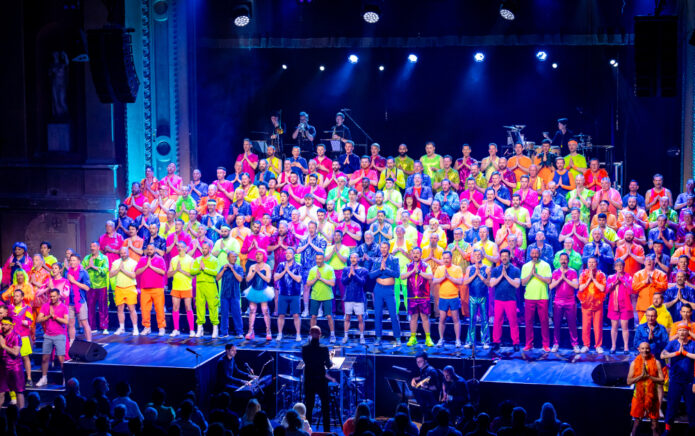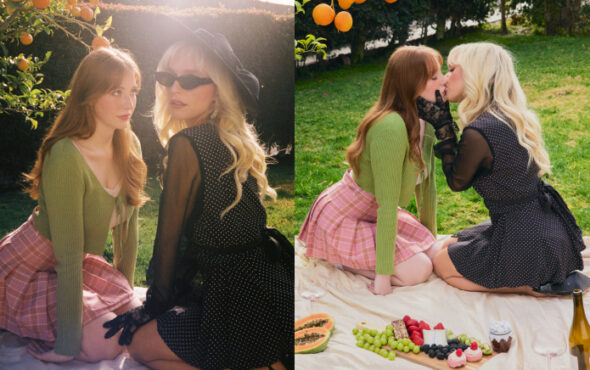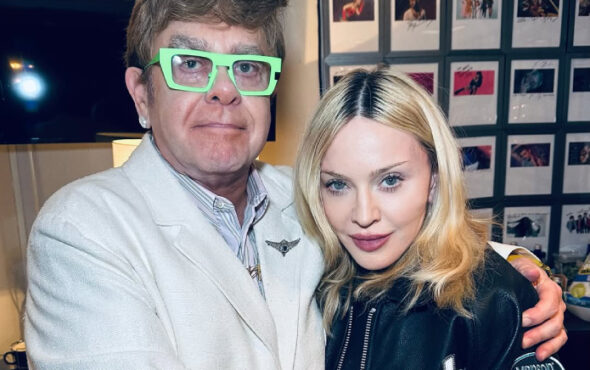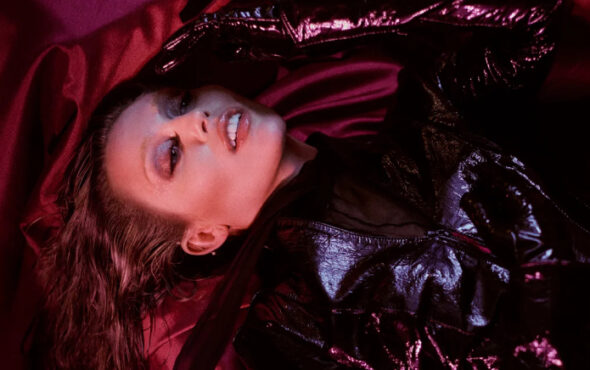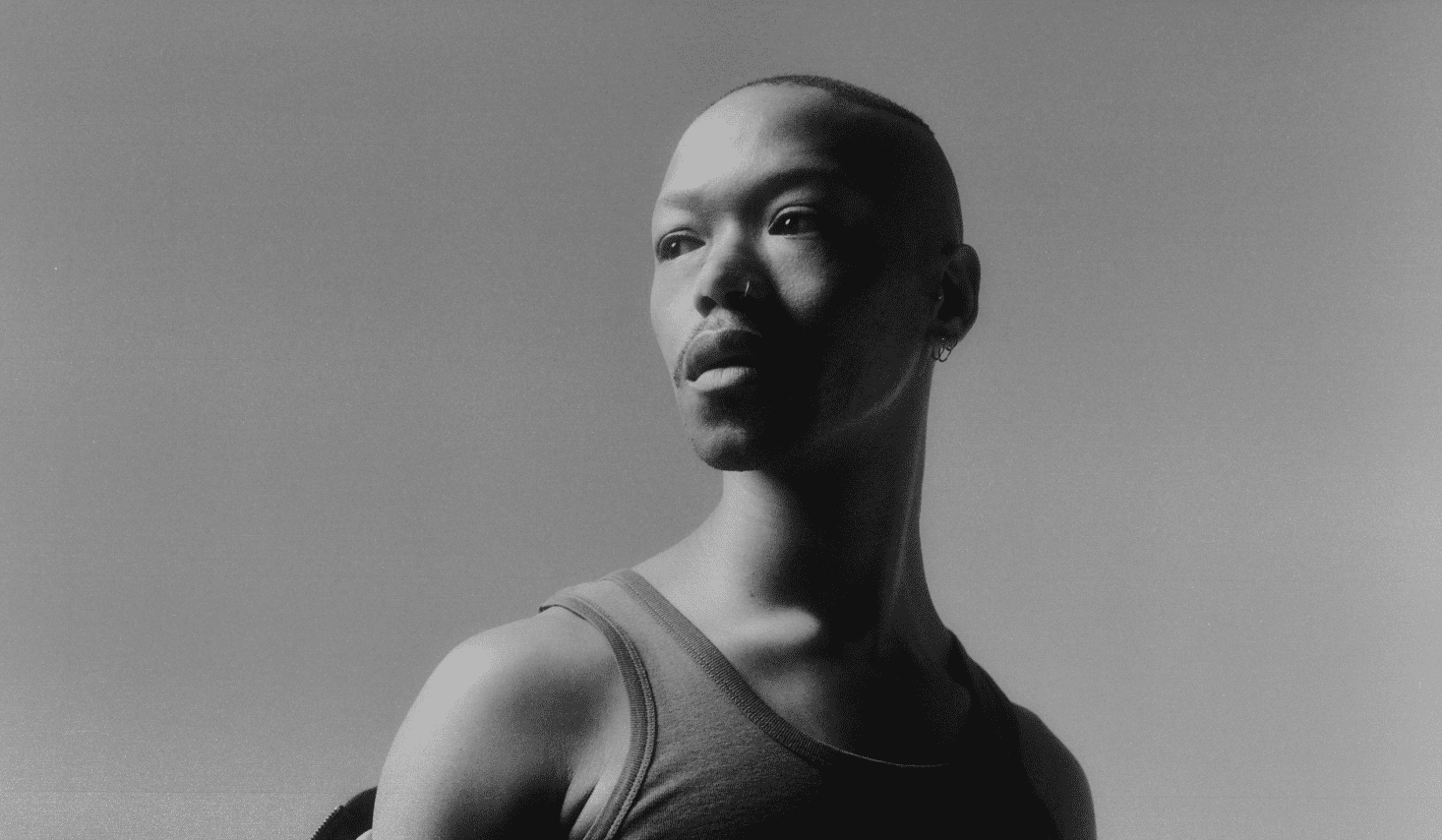
Nakhane is a soulful, considered artist. The singer’s second album, You Will Not Die, sews together stories of grief, trauma and self-expression. In their new single, Standing in Our Way, the 35-year-old unpacks what it’s like to face difficult situations head-on, and then yourself with the kindness you deserve.
Born off the Eastern Cape of South Africa, Nakhane emerged as a resilient artist dedicated to their craft. However, when their appearance in an openly queer film, The Wound, erupted in controversy, the musician decided to take a new direction. Now, having lived in London for over five years, Nakhane has established themselves as a creative polymath. Delving into literary, film and music spaces, they have earned praise from the likes of Madonna and Elton John.
With their new record, Bastard Jargon, on arrival, GAY TIMES caught up with the singer to discuss their “existential sex album” and more.
Hello! How are you – have you had anything interesting happen to you today?
I’m well, thank you. I’ve started to go for morning runs again and I feel the endorphins still coursing through me. And today my dog didn’t almost run into me, so that’s good. He’s half Border Collie so I think when we’re running together he believes he’s herding me.
You’ve got new music on the way and we’re huge fans of it. You Will Not Die is an incredible record.
Yes! It’s been too long. I never thought that I would be the kind of artist who releases albums every 5 years. I always used to wonder what took those artists so bloody long, but now I understand that there are things that happen in the background that we know nothing about. I’m really excited for this album to be out and to tour it. I miss that the most.
Now, your follow-up release, Bastard Jargon, is on the way. What inspired the title?
I was 20 years old, studying African Languages at WITS University in Johannesburg, and we were being taught how languages come to be standardised. I remember the lecturer saying that before a language is deemed a Pidgin or even a Creole, they’re called Bastard Jargons. I liked how that sounded. I also liked how it marked new beginnings, a budding.
Having listened to this record, it’s defiant in its sound and its personal politics. How did the creative direction of Bastard Jargon come about?
Having toured You Will Not Die for a couple of years I knew that my next body of work was going to based on rhythm. It was complicated singing all those slow, drum-less ballads in outdoor festivals at 2pm. I wanted something that would make me move, and subsequently the audience, also. Beyond that, it’s also part of a pact I made with myself that with every album I would make in the future, there would be some stylistic shift.
Blending dance-pop and funk, this album sees you delving into topics of gender, sexuality and religion. How did you cultivate a creatively stimulating environment to explore these areas of your identity in your writing?
90% of the time when I’m writing music I’m on my own in some room. I write a manifesto about what I’m not going to do, and then follow it with what I’d love to do. These ‘rules’ can sometimes be constricting (even for me, the person who wrote them). For example: I wanted to make a sexy sex album; but the more I wrote, the more the songs dictated that however upbeat they were going to be, they would be more psychological than that. This is why I call this album an ‘existential sex album’.
This album unpicks the nuances of self, boundaries, and vulnerability across specific tracks (e.g. The Caring/Tell Me Your Politik). What was the biggest challenge you faced writing this album?
I believe on some level I’ve been writing about those topics since I began my life as a songwriter. The difference this time – and the challenge – was learning to be more direct, to not be too obfuscatory, but to go straight for the jugular. Initially a challenge, it soon became a limitation that I enjoyed wrestling with.
Following that, what was the biggest lesson you took away from the process of making this album?
That my ideas are to be trusted, that art is subjective and that there is no wrong or right way to do things.
You’ve previously mentioned that “queerness is seeing a new perspective”. In hindsight, how has this perspective lent itself to you and your mission with music?
As an artist, I believe I’m trying to carve out my own niche. In doing that, though, there are always voices that tell you that you should just follow what other people are doing, that what those people are doing is working – and selling – and so, of course, why would I not want to do what they’re doing. I have to remind myself – almost daily – that this is my race, and turning to look at what others are doing is only going to distract and slow me down.
You’ve worked with Perfume Genius, Moonchild Sanelly and Nile Rodgers for this project. What was that experience like?
Oh, it was absolutely amazing. I couldn’t have picked lovelier, or kinder people to work with. They were excited about the project and gave so much of themselves to it. I’m eternally grateful.
You’ve previously said you don’t consider yourself a storyteller. As someone whose created art across acting, music, and writing — how best would you describe yourself?
When I said that I was probably kicking against the enormity of what being a storyteller is. I didn’t want to be weighed down by it. I wanted to allow myself to be a creator of mood, of feelings, without having to adhere to the rules of being a storyteller. Now, though, I’m not as opposed to it as I was before. Like any skill, it can be learnt, used and rejected whenever I see fit.
Lastly, with Bastard Jargon finished, how do you feel about its upcoming release?
I’m always nervous before any release, but above all of that I’m excited. This album has been ready for over 2 years, and I still love it. It still gives me joy whenever I listen to it. I can only hope that it does the same to my audience.
Bastard Jargon is out on March 31
